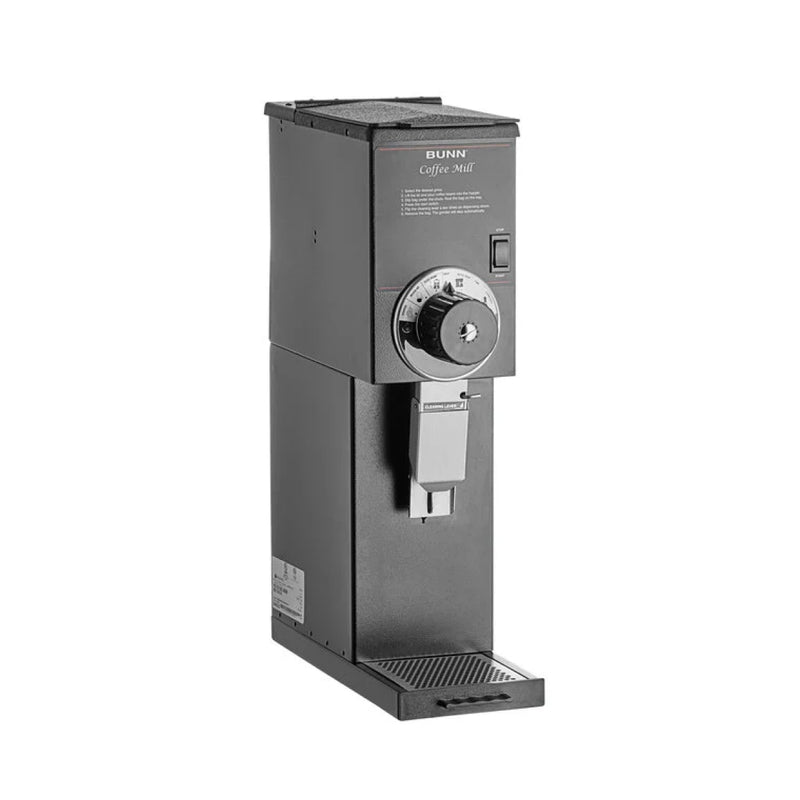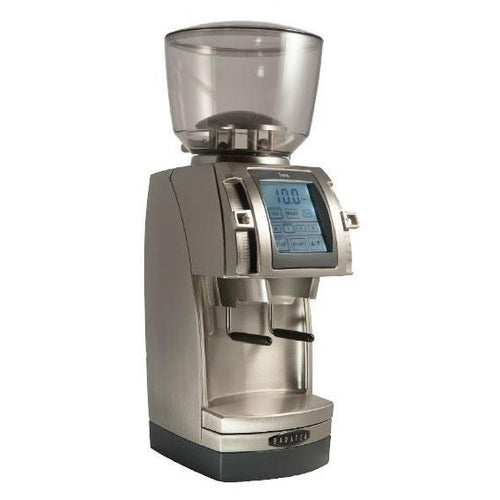Industrial Coffee Grinder: Choosing the Right Model for Your Business
Wiki Article
Just How to Select the Perfect Industrial Coffee Mill for Your Service
Selecting the ideal commercial coffee grinder for your organization is a diverse choice that needs careful factor to consider of several vital factors. It is vital to assess your certain grinding needs, consisting of the volume of coffee processed and the wanted grind uniformity, as these aspects straight impact taste and consumer contentment. Additionally, recognizing the different kinds of grinders offered can significantly influence your functional efficiency. As you navigate these factors to consider, one must also evaluate the ramifications of budget plan and upkeep. What various other elements could make or damage your selection?Assess Your Grinding Demands
When picking an industrial coffee mill, one have to initially assess their grinding needs to guarantee optimum performance and consistency. This initial assessment includes comprehending the volume of coffee to be refined daily, along with the wanted work dimension for numerous developing methods. A high-capacity grinder may be needed for services offering big amounts of coffee, while smaller sized procedures could locate a much more small design enough.Furthermore, it is vital to think about the kinds of coffee beans being used, as different beans may require specific grinding strategies to attain the finest flavor account. For example, oily beans might necessitate a mill created to manage such qualities without clumping or overheating.
One more critical factor is the called for grind uniformity. Specialized coffee businesses usually require accurate work sizes to boost extraction and taste, making it crucial to select a mill that can provide consistent results. Assessing the readily available room and electrical demands will certainly assist in picking a grinder that fits seamlessly right into your operational process. By extensively evaluating these variables, companies can make educated choices that align with their coffee grinding requirements, inevitably resulting in a premium product and completely satisfied customers.
Understand Grinder Types
Understanding the different kinds of commercial coffee grinders is important for making a notified choice that fulfills specific operational needs. There are mainly two classifications of grinders: blade grinders and burr grinders.Blade mills make use of rotating blades to cut the coffee beans, causing an irregular work dimension - Industrial Coffee Grinder. While they might be more budget-friendly, they are commonly not ideal for business applications where accuracy is necessary
On the other hand, burr mills give a much more consistent grind by crushing the beans in between 2 surfaces. They can be further classified right into level burr and conelike burr mills. Flat burr mills supply a regular grind size and are typically favored for espresso prep work, while conelike burr mills are versatile and can manage a variety of brew methods, from coffee to French press.
When picking a grinder, consider the specific needs of your organization, consisting of desired work consistency, production quantity, and the kinds of coffee beverages you intend to use - Industrial Coffee Grinder. Each grinder kind has its limitations and benefits, so comprehending these nuances makes it possible for notified decision-making that straightens with functional goals
Evaluate Work Size Uniformity
Accomplishing grind size consistency is important for generating high-quality coffee, as variants in particle size can significantly affect removal and flavor. When picking an industrial coffee mill, it is critical to assess just how well the device keeps uniformity in work size throughout various batches. Irregular work sizes can cause unequal extraction, resulting in a cup that may taste overly bitter or weak.To examine work size uniformity, consider mills with features such as flexible work settings and top notch burrs. Burr grinders, in specific, succeed in generating consistent fragment sizes compared to blade mills. The material and shape of the burrs play a vital function, with stainless-steel and ceramic alternatives offering sturdiness and accuracy.

Take Into Consideration Manufacturing Ability
In the fast-paced world of coffee production, considering production capacity is critical for companies intending to fulfill need without giving up top quality. The manufacturing capability of a commercial coffee mill straight affects a business's capability to satisfy orders effectively, handle inventory, and reply to varying market fads.When examining production capability, it is vital to evaluate the grinder's output price, usually gauged in pounds per reference hour. This measurement should straighten with your service's predicted sales quantity and growth targets. A coffee shop with a high turnover might need a grinder that click to find out more can refine numerous hundred pounds daily, while a smaller procedure may be enough with a reduced capacity model.
In addition, think about the sort of coffee being processed. Various beans and blends may impact grinding speed and performance, necessitating a grinder with the ability of dealing with varied production needs. It's additionally worth considering the mill's ability to keep consistent top quality under high outcome conditions, as any type of fluctuations can impact the end product.
Inevitably, selecting a mill that matches your business's manufacturing capacity will guarantee you remain receptive and affordable to customer expectations.

Budget and Upkeep Elements
When assessing the ideal commercial coffee grinder, budget plan and upkeep aspects play a significant role in the general decision-making procedure,. A first investment in a top quality grinder can produce lasting advantages, but it's vital to establish a clear budget plan that straightens with your service's functional needs. Think about both the acquisition cost and prospective functional expenses, such as power usage and substitute parts.
Industrial coffee grinders call for normal upkeep to guarantee ideal efficiency and long life. Assess the manufacturer's referrals for upkeep, including cleansing routines and parts substitute, as these will impact long-term functional expenses.

Purchasing a mill that is resilient yet simple to maintain can save money with time. While lower-priced options may be tempting, they might incur higher upkeep costs and minimized efficiency. Inevitably, balancing initial costs read this article with long-lasting upkeep and operational effectiveness will certainly guide you to the ideal choice for your company's coffee grinding demands.
Conclusion
Choosing the suitable industrial coffee grinder requires a comprehensive analysis of grinding needs, grinder types, grind dimension uniformity, manufacturing capacity, and monetary factors to consider. By focusing on these elements, services can make certain the procurement of a reputable, reliable mill that meets particular operational needs. An appropriate mill not just enhances the quality of the coffee created however likewise adds to the total success and productivity of the enterprise. Long-term performance and upkeep ease ought to stay central to the decision-making process.Specialized coffee businesses frequently demand specific work sizes to enhance removal and taste, making it crucial to select a grinder that can supply consistent outcomes. Flat burr grinders supply a regular grind size and are typically preferred for espresso prep work, while conelike burr grinders are versatile and can manage a variety of brew approaches, from espresso to French press.
When choosing a commercial coffee mill, it is critical to assess just how well the equipment preserves uniformity in work dimension across various batches. Burr grinders, in specific, excel in generating uniform particle sizes contrasted to blade grinders.Picking the suitable industrial coffee mill requires a comprehensive evaluation of grinding requirements, grinder types, grind dimension consistency, manufacturing capability, and financial considerations.
Report this wiki page